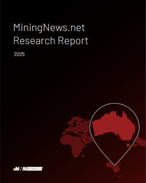This article is 5 years old. Images might not display.
The Chamber of Minerals and Energy of Western Australia (CME) said the decision on Saturday to stop FIFO from NSW had been made by the resources sector in the interests of community safety.
"The sector is very grateful for the support given to us by the WA Government, and we want to do all we can to stop the spread of COVID-19 across our sites and the wider community," CME chief executive Paul Everingham said.
"We have been in discussion throughout the day with our members across all commodities and decided this was the best course of proactive action to take."
WA's biggest source of FIFO workers come from Queensland.
However, on Saturday, WA premier Mark McGowan flagged the complete closure of the state's borders.
The CME advised its members the interstate FIFO worker exemption would be removed.
"This will mean that all interstate employees will need to undertake 14 days of quarantine in WA before they are allowed to go to their place of work," Everingham warned in a circular to members.
"I encourage all of you to please prepare accordingly. This is not speculation. This is going to happen."
In a separate update yesterday, Everingham said current discussions included potentially allowing only very critical and highly technical FIFO roles into WA but with 14 days quarantine required.
"WA government advice is to move essential workforce to WA immediately," he said.
"We will likely see the new framework on Monday and have a short period to adjust."
The new restrictions follow the restriction on people movements within WA's regions.
Last week WA treasurer Ben Wyatt thanked the CME after it emerged BHP, Rio Tinto and Northern Star Resources helped move Aboriginal people back to their communities by providing planes and vehicles.
The Association of Mining and Exploration Companies said it understood South Australia and Queensland were also developing similar policy.
"Clearly, we are heading toward an operating environment where interstate travel into any Australian state or territory is no longer permitted. Please plan and prepare accordingly," it said.
Fortescue Metals Group said today it had introduced a temporary change to its FIFO roster, moving from a two week on/one week off roster to four weeks on/two weeks off.
The change will reduce travel to and from sites by about 40%.
Additional charter flights and bus services have been introduced to ensure physical distances are maintained between team members when travelling.
Exploration has been suspended but FMG's major construction projects, Iron Bridge and Eliwana, continue to operate.
"We appreciate that the state and federal governments have acknowledged the importance of the sector's contribution to the economy and have identified the resources sector as providing essential services and exempted mining and other resources industries from some of the travel restrictions and other guidelines introduced across the country," FMG CEO Elizabeth Gaines said.
Rio said it had also implemented changes to rosters, while BHP said it had temporarily relocated some workers and their families due to travel restrictions.
Gold miner Saracen Mineral Holdings has moved to a three weeks on/three weeks off roster, while peer Northern Star Resources has also changed its rosters.
In some good news for the WA mining sector, the government has agreed to relief on minimum exploration requirements until the end of March 2021 if explorers are unable to meet commitments due to restrictions.
Explorers can apply to the Department of Mines, Industry Regulation and Safety (DMIRS) for an extension.
"These are uncertain and challenging times, and I want to thank those in the mining industry for sharing their views on how the state government can assist," WA mines and petroleum minister Bill Johnston said.
"The McGowan government is taking this situation very seriously and is working to identify opportunities to assist our local businesses in the sector."
AMEC welcomed the announcement.
"The reality for mineral exploration is that without significant cost relief from government, many small exploration companies will not survive COVID-19," AMEC CEO Warren Pearce said.
"AMEC has been calling for cost relief from all Australian governments in three key areas, exemptions from minimum expenditure requirements, mining tenement rental fees and local government rating on tenements. All three are large fixed costs that many in our industry can no longer afford to bear."
"We are extremely pleased that the WA government is implementing the first of these calls which will remove some immediate financial pressures for these companies."
























